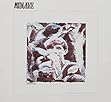Subjunctive Mood
The subjunctive mood is not limited to the hypothetical. For instance, the clauses “it is important that you tell the truth” and “I suggest that we open the windows” express the subjunctive mood in the subordinate clauses. The subjunctive mood is still used frequently, albeit obliviously.
Hypothetical subjunctives are necessary to delineate from the past tenses of verbs. For instance, the If-clause “if I were a carpenter” expresses the hypothetical, while the If-clause “if I was a carpenter” expresses uncertainty about the past.
The Bedford Handbook notes that “in the subjunctive mood, there is only one past-tense form of be: were (never was).” (342) Bedford also acknowledges that the subjunctive “causes problems for writers” (342) (because at first, they don’t appear grammatical), is used less often than indicative or imperative moods (341), and was “once more widely used.” (343)
Source: Hacker, Diana. The Bedford Handbook – sixth edition. New York: Bedford/St. Martin’s, 2002.








